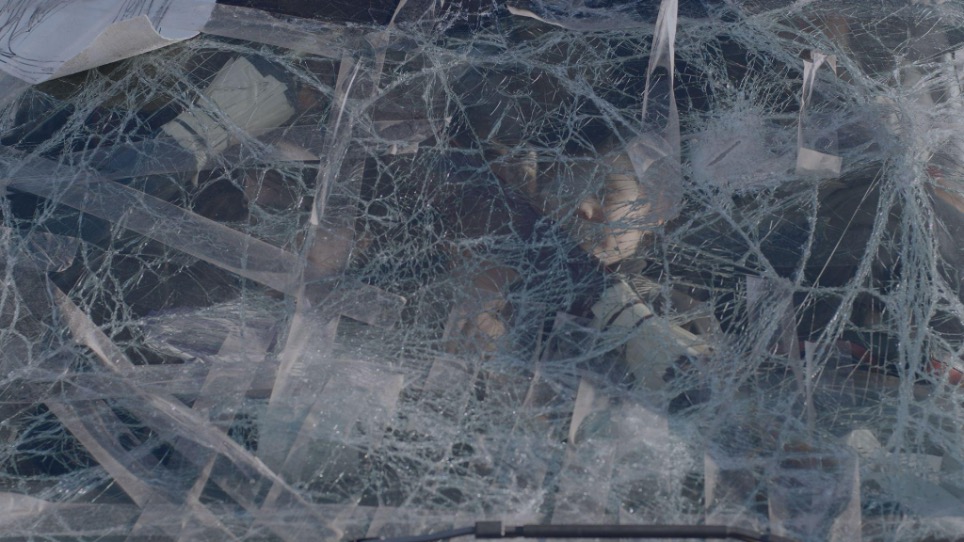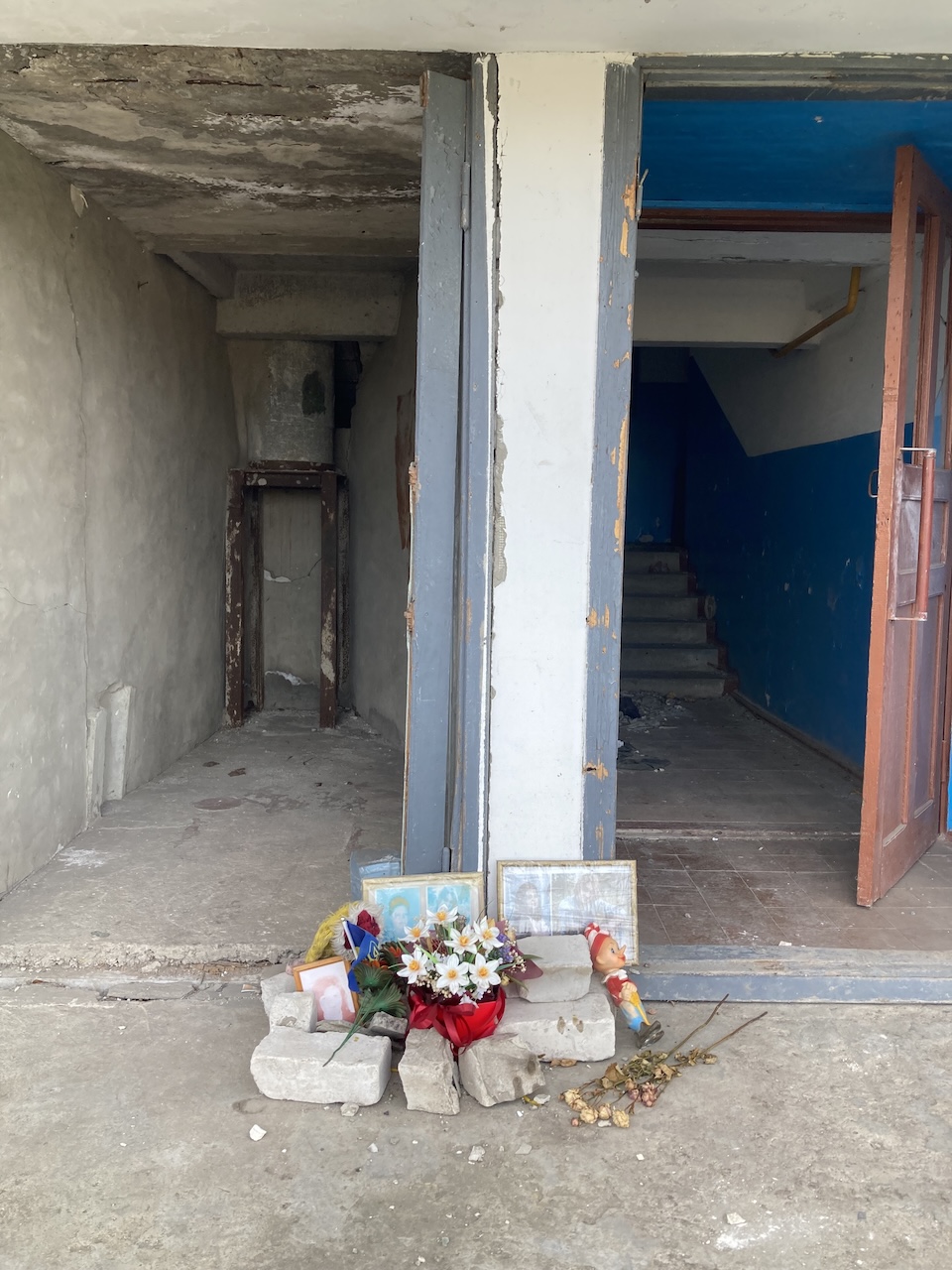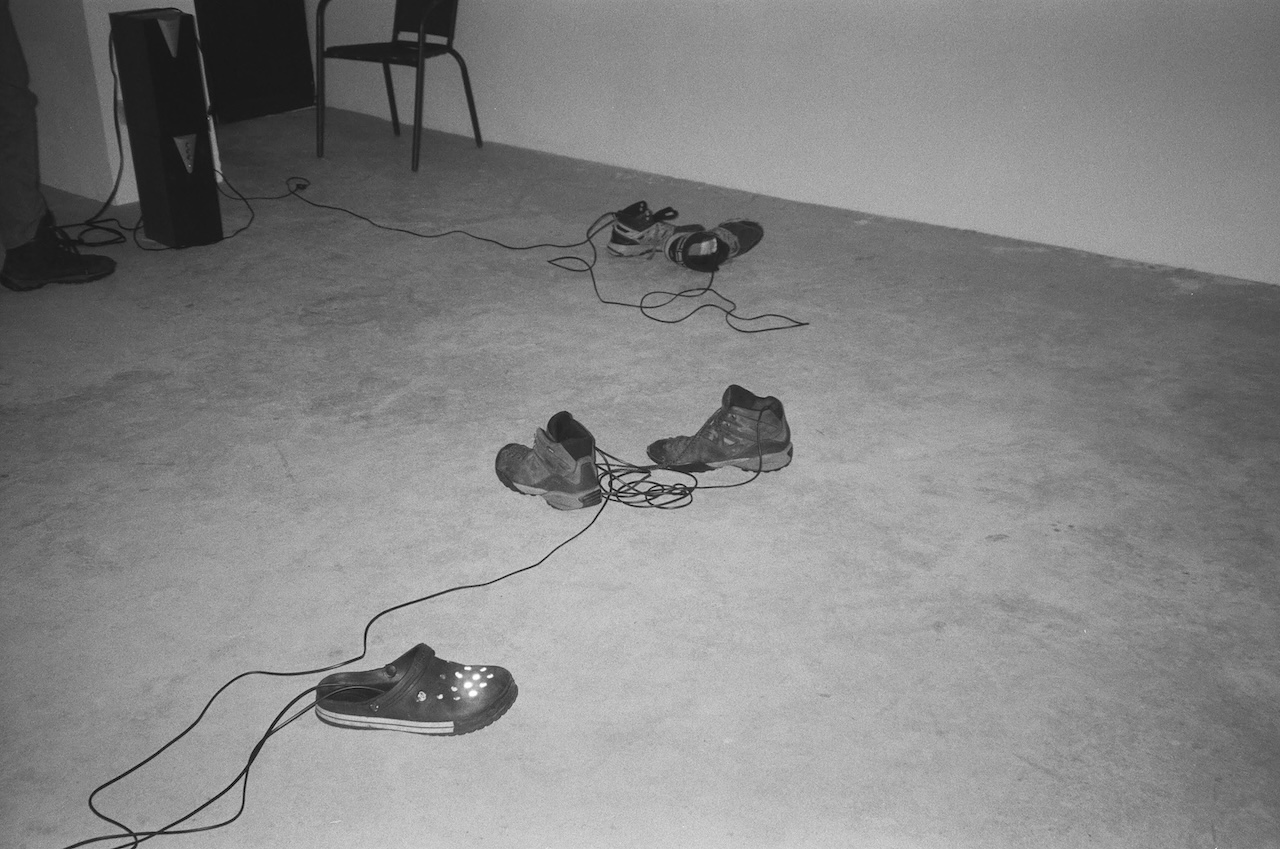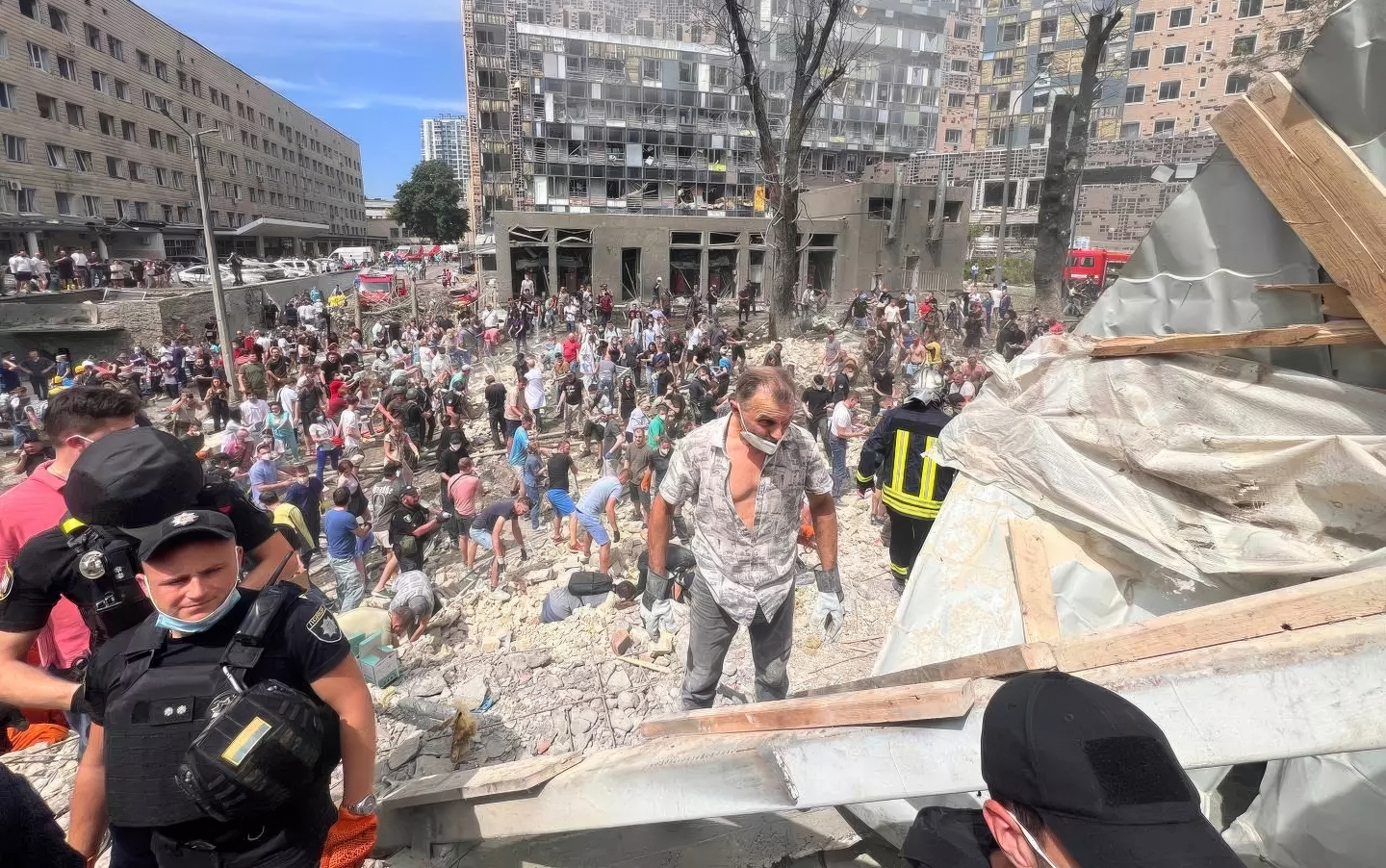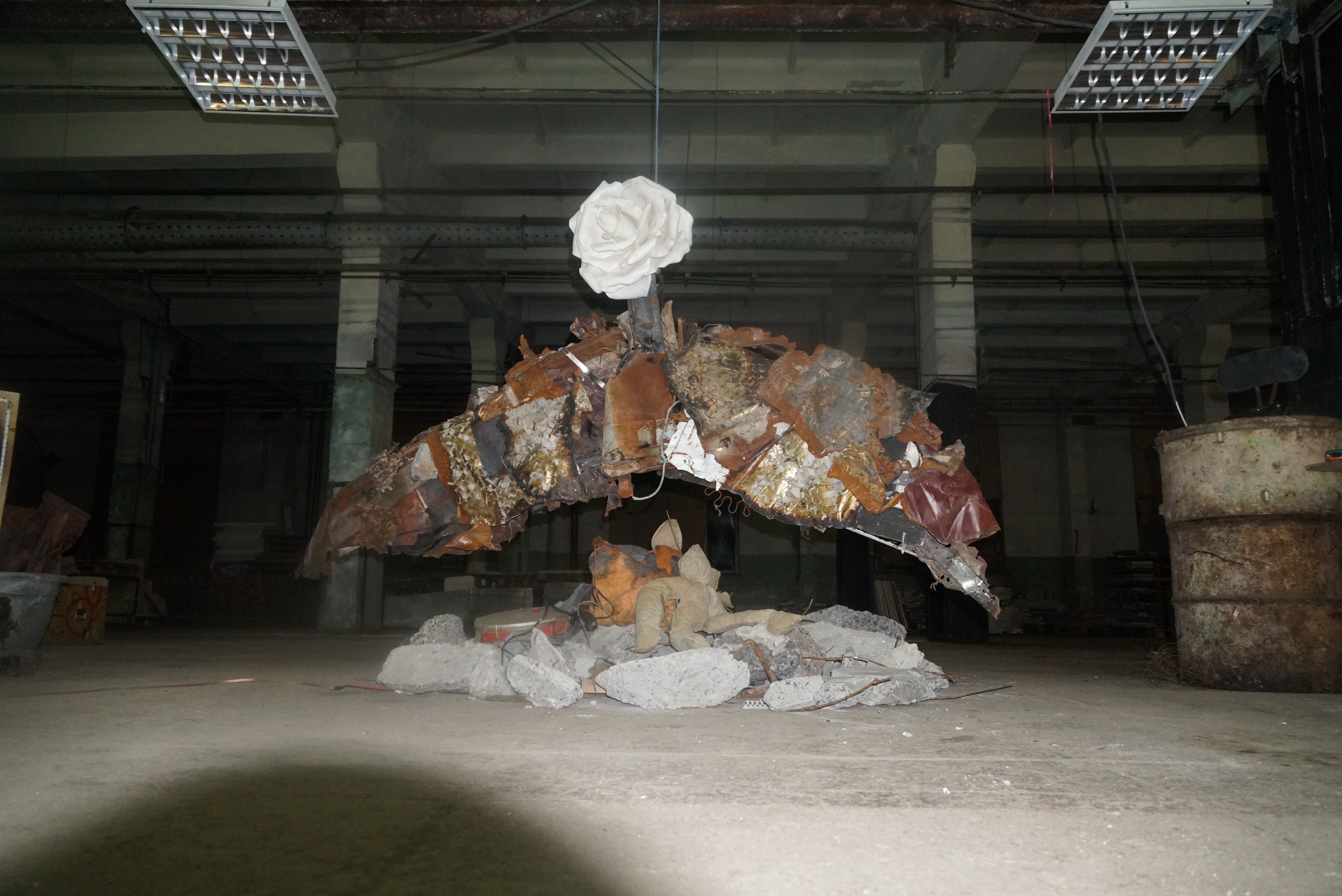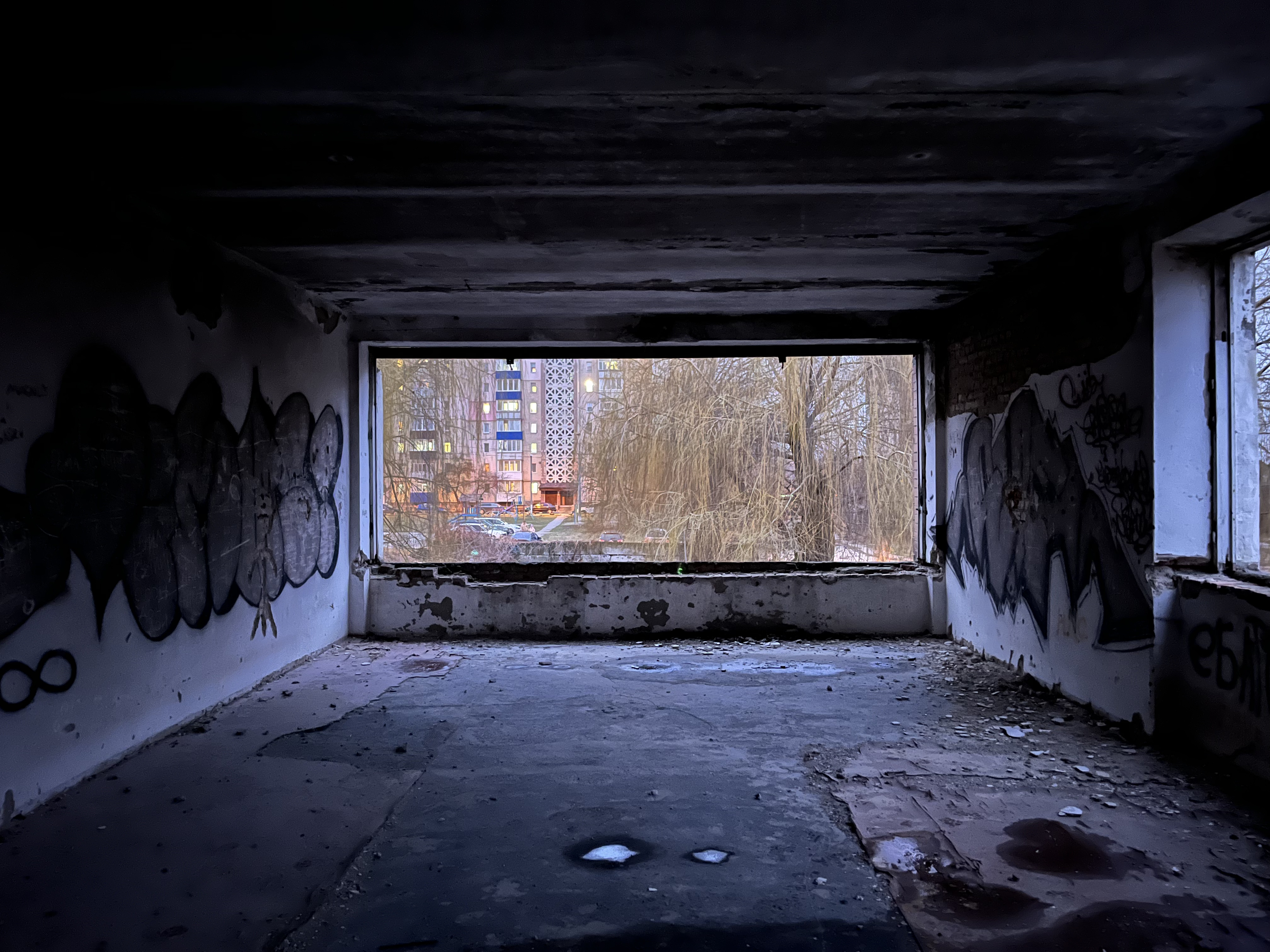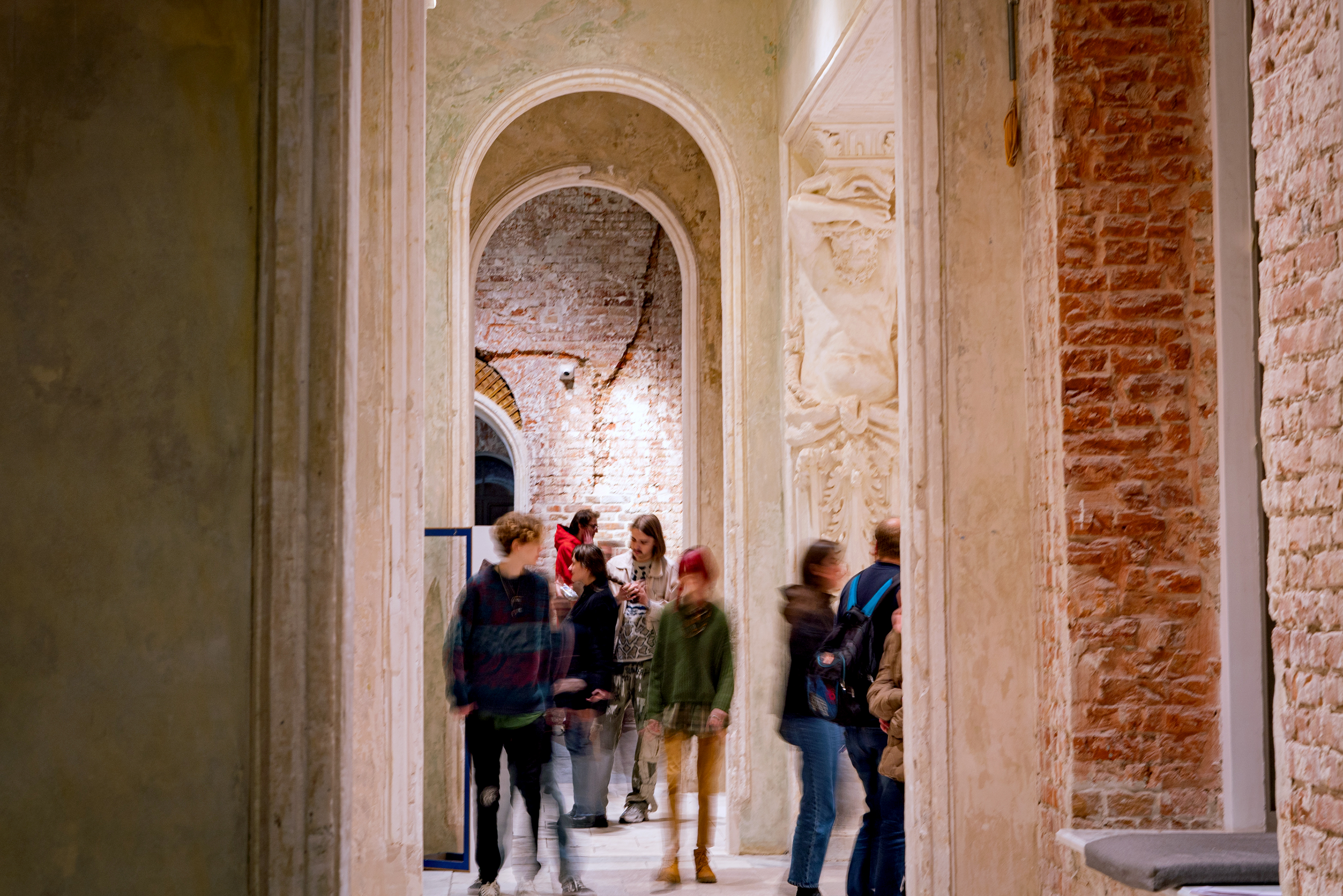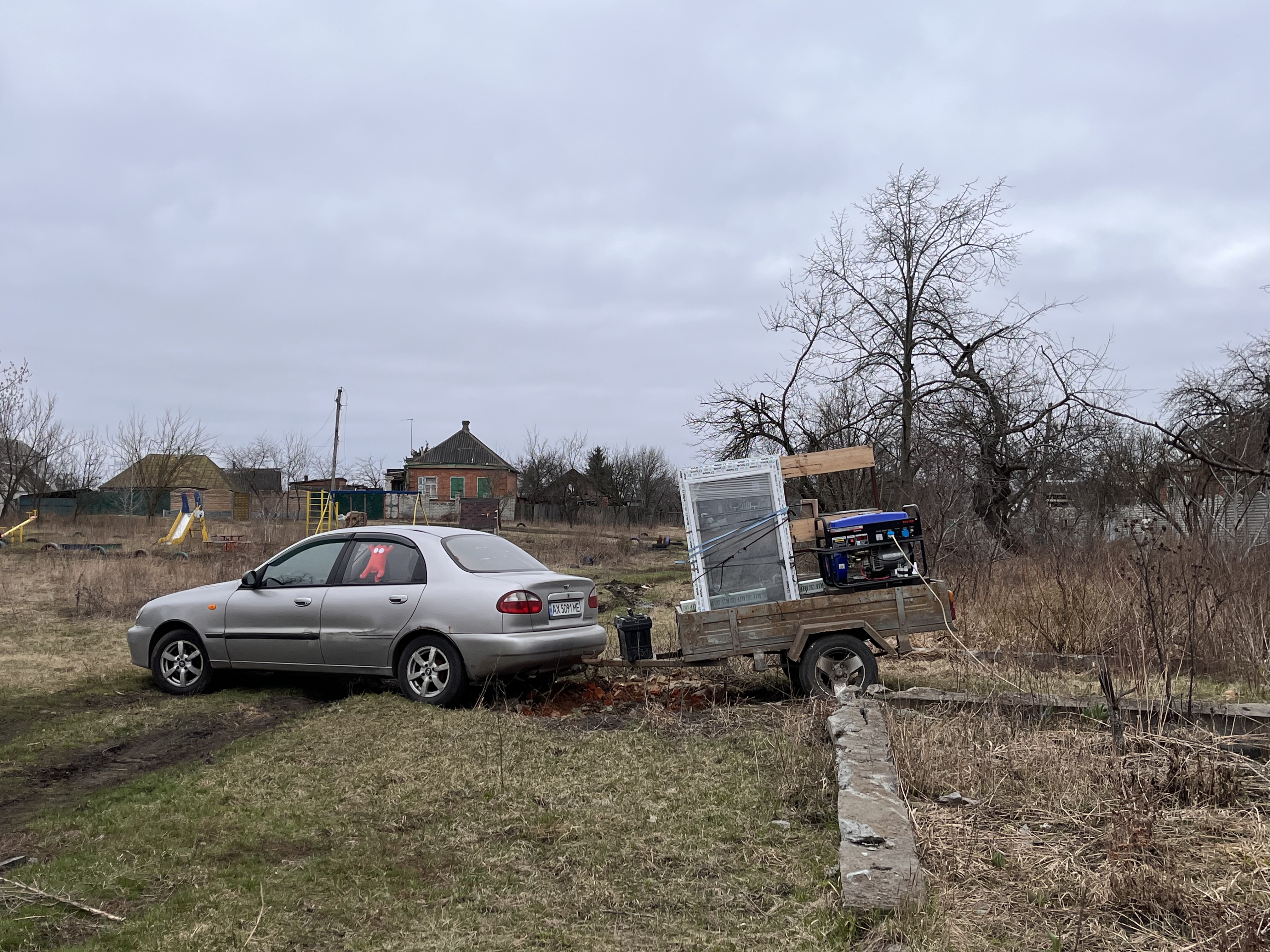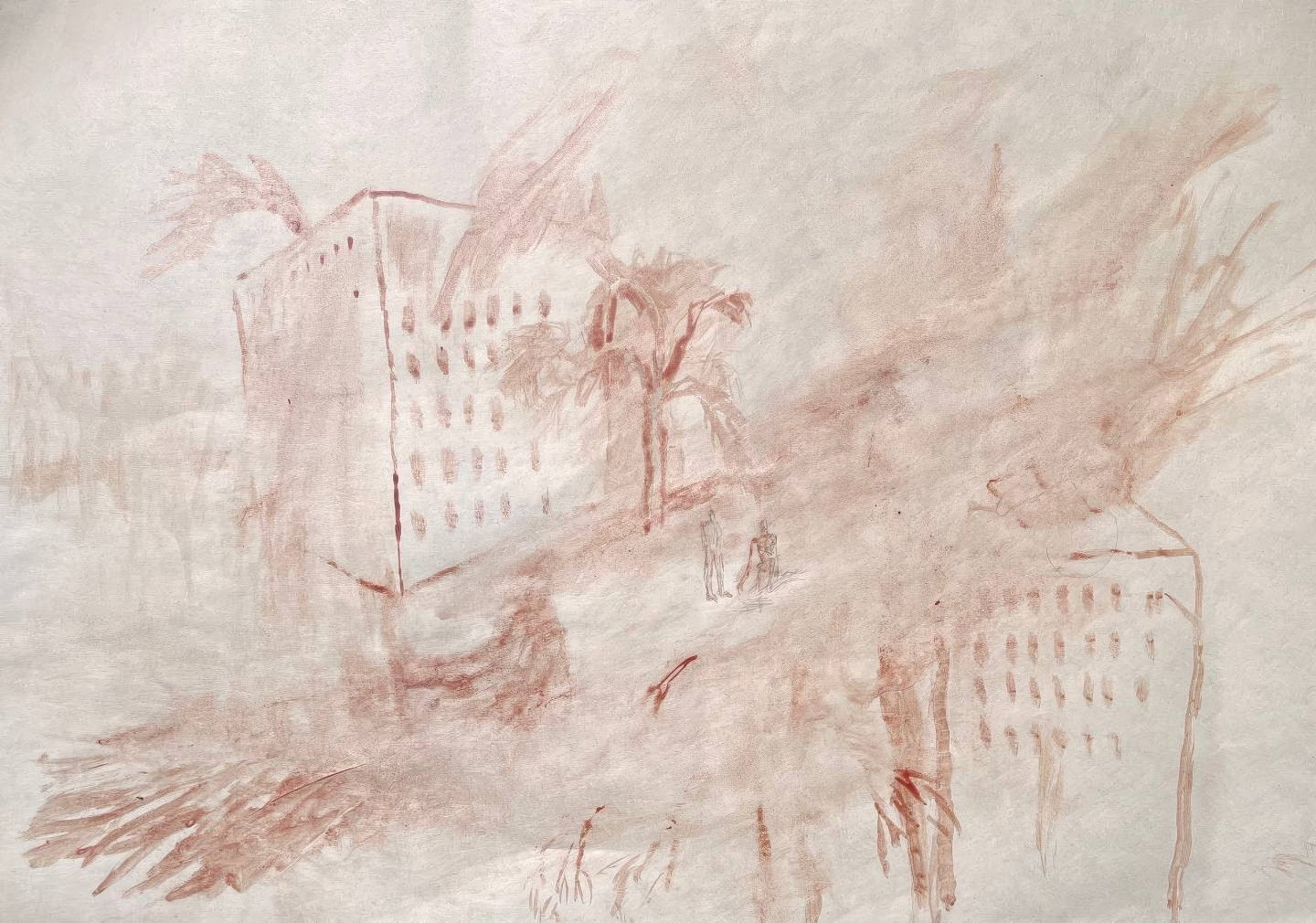
Anastasia Ryabova, May 15, 2022
With the beginning of the war, muteness set in. I practically couldn’t write anything about these events, couldn’t comment on them, and it was even difficult to “like” anything. It has now occurred to me that the only way out is to say something about this muteness.
My life is tightly bound up with Russian and Soviet culture—I have little besides this. Conversations about its end touch a raw nerve. You feel like waving them away because, well, what culture—this is so tremendously unimportant in the context of so much death. But waving things away doesn’t work; they are too insistent and make their way into an internal monologue.
All of the basic positions here look stupid: (1) Russian culture is no more. (2) A great culture is going through a time of disorder; art and the state are fundamentally distinct entities. (3) In the interest of cultural revision, we should separate the emancipatory from the authoritarian, the decolonial from the imperial. The first position makes the most sense and is emotionally closest to mine. I too feel this collapse, the absolute failure of everything once relied on, the way all the work done and yet to be done has been rendered meaningless. But simply crossing everything out means refusing reflection. This is perhaps the most honest reaction to pain, but it doesn’t do any good. The second position seems like just a calming mantra. The third is the most complicated and I will return to it later.
*
V. keeps insistently asking me why we—that is, me and the people who think more or less like me—are experiencing what’s going on as a catastrophe completely unparalleled by anything we’ve seen or heard before. How are Bucha and, say, Chechnya so different? I have been thinking a lot about this.
There is an important difference in the intensity of how this is experienced. Probably no past generation has had the nightmare of war so tightly woven into the fabric of daily life because of a medium—primarily Telegram. This is not a newspaper that you can put aside, a television that you can turn off—the news keeps coming in the same window that conveys ordinary personal communication, so it is impossible to ignore. But there is something more important still, and this something is connected to culture.
The war has deconstructed us, we “Russian intellectuals,” “the creative class”—exposing the territory we share with the regime. We knew that the state produced military violence—in Chechnya, in Syria, lots of places; that other states do the same thing. But this was violence done to Others—people different from us. This did not make it more acceptable, but it did make it more comprehensible. The violence in Ukraine is different in that it is violence against people who are the same as us—who speak the same or a similar language, who look exactly like us, who are, in the end, our friends, acquaintances, and relatives.
Thus the anthropological safety-locks fall away, revealing us to be those very white people who believe all people are equal, just not entirely. Differences give structure to the world and render it—in its most reprehensible manifestations—digestible. When these differences fall away, that which seemed to have always been there—people’s readiness for barbarism and the state’s readiness for extreme cynicism—becomes shocking. Violence in its most extreme form is unleashed.
The so-called special military operation can be easily described in terms of Rene Girard’s notorious crisis of differences. Тhe official Russian rhetoric claims the nonexistence of Ukrainians as a nation and simultaneously condemns them as Nazis—that is, an über-nation. There is a failure to construct the enemy—it is simultaneously superreal and nonexistent. There are no differences capable of rationalizing violence. This is why the discourse around “denazification” immediately implodes and is grotesquely mirrored back in the letter “Z.” This is why the war looks so absurd. Everything symbolic that might lend the state’s actions the appearance of at least some consistency—not legality or decency, but some kind of order, even if grossly unjust—is falling to pieces, forming a space of pure insanity.
The shock that we are experiencing is not only shock in response to bestial violence, but also shock from violence that appears to be motivated by nothing other than itself. And this shock causes the scales to fall from our eyes. It speaks of all the other rationalized violence we have been readily accepting—not approving, but accepting into our worldview. And this shock naturally turns our sense of history inside out, because history—not entirely, but in part—is the history of violence, somehow motivated. For those of us whose lives are tightly bound up with culture, this shock also turns culture inside out, culture that has been witness to and fed by history.
*
Last week, when I was getting ready for a conversation with the philosopher Ivan Boldyrev, I was rereading Walter Benjamin’s “On the Concept of History” and once again called to mind his phrase: each document of culture is simultaneously a document of barbarism—a thought that was very influential for me and distinctly resonates with the conversation about the cancellation of Russian culture currently underway. Colonial and gender approaches—despite all my dislike for their fetishization—offer a great deal for expanding our understanding of this barbarism.
I think that in culture it is impossible to separate the clean from the unclean, the exploitative from the emancipatory, the imperial from the subaltern—Nikolai Nekrasov from Fyodor Tiutchev, the other Vsevolod Nekrasov from, say, Vsevolod Kochetov, Andrei Tarkovsky from Nikita Mikhalkov. In all epochs, styles, authors, and works, both are present. With great artists they are often woven together into an indistinguishable blob (Gleb Morev’s recent book about Mandelstam is an excellent illustration of this).
You can’t scrub the imperialism out of Russian culture because such is its nature. Nearly every utterly individual statement from within it exists in a special relationship to, a special tension with, this great imperial scale. The culture of the Soviet underground, an important point of reference for many of those calling for the need for revision, experienced this tension with particular intensity. For them, this tension may have been critical, but criticism does not mean escape. Violence likewise cannot be scrubbed out of culture. That same underground culture was aggressive and macho. This doesn’t mean that it lacks liberatory potential—this potential was enormous. But not total.
I think that the loud calls to divide good and evil—in culture or in politics—are almost always hypocritical and often self-incriminating. This is why I think that a true love for culture does not call for division, but for seeing this indivisibility. Not necessarily justifying, but trying to understand it. (Here we encounter another sin that I am definitely guilty of—being overly fascinated with ambivalence and irreconcilability as a manifestation of complexity.) This is also how the sense of belonging to history is constructed. In history it is impossible to separate enchantment from horror, pride from shame. If you experience history as your homeland, then you know that the blood in your veins comes in equal measure from the murdered and the murderers (please excuse the right-wing metaphor). This does not mean that you shoulder all the guilt, but it does mean that you cannot disregard this pain and irreconcilability. I don’t think this is something we are born with—by inheritance or territory. I think that there is a choice here. For me this has primarily to do with the Soviet period and all of its culture—political and artistic, state-run and underground. In the war currently underway it is impossible not to hear the hideous echo of Soviet history, and so I experience it as my business, too—my defeat.
*
In almost everything I have written about literature and cinema, I have been interested in one question—the question of the right to speak. There is a dense knot here. I am not a philosopher, and I may be describing this knot rather clumsily, but I think that these are pretty obvious things. The right to speak (and to act) is directly bound to power [Ru: vlast’; here given variously as “power” and “authority”—Trans.], and power is linked to violence. (Violence is the continuation and rejection of power/authority, just as war is the continuation and rejection of politics.) The one who speaks—the artist or intellectual—speaks with awareness of power/authority and in one way or another uses it, drawing their right from the very substance of power. In this way they too are aware of violence. Speech and art are bound to violence indirectly—through the handshake of power/authority—but they are bound tightly.
It’s difficult for me to judge other cultures; my knowledge of them is too superficial. But I think I know Russian culture pretty well, and I can see that this is laid in its very foundations. No one felt this three-way connection more acutely than Pushkin, and no one spoke about it so frankly (this is why the rhetorical debates about him going on right now are not as empty as they may seem). Platonov knew it too, and Mandelstam, and—in a shrewd way—Kharms and Vvedensky, and everyone who came after them.
Moments of crisis of power/authority, and thus of crisis of the right to speak, have always been more interesting to me than moments of its confident manifestation. I used to think that in these moments one might find a certain kind of freedom. Worldly power/authority, remaining in the sphere of worldly matters, which include culture and politics, cannot be denied, but one can discover zones of slippage. At a certain point the freedom acquired in these zones began to seem much more convincing and interesting to me than the freedom of emancipatory rhetoric and practices—which so easily turns into its opposite.
*
Nevertheless, in retaining the need and desire for speaking, people and culture always remain in the space of power/authority. And thus the potential for violence remains as well. Culture—in the forms that we usually love—attempts to pull power in the opposite direction, toward speaking and action. But violence is always lurking nearby.
Late Soviet culture, which I have bound my life to, is culture that emerged as the consequence of colossal violence (and simultaneously as the consequence of an enormous liberatory breakthrough), keeping the half-suppressed memory of it in its heart, blurting it out one way or another, even when talking about something completely different. But violence is not only in the past, it is unfolding all the time: in the state, in the city, in the family, in the community. (This last statement sounds like a commonplace, but the literary community that I have belonged to for the last ten years or so experienced this kind of shock from violence quite recently, such that the mechanics of it could be seen in direct practice.)
In its attempts to avoid catastrophe, this violence is camouflaged by a net of differences and thus incorporated into a tolerable worldview, gradually receding into the penumbra. We, as enlightened as they come, are simultaneously aware of it and not aware (Girard, again, wrote a lot about this). This hypocritical awareness/non-awareness allows us to think and speak, while in fact sharing one big world of power/authority with all of those who practice it, including the state—no matter how much we might hate it. A catastrophe—and Bucha, along with everything that this name stands for, is just such a catastrophe—destroys this fragile net, demonstrating violence that is impossible to explain. This demonstration casts a monstrous light upon the whole system of culture, infects and transforms it.
The catastrophe reveals the truth, the studious ignorance of which was the only thing that made speech, thought, and art possible. Bets placed on the fragile balance, on speaking with the awareness of its dangers, turn out to be a hypocritical compromise. And this is where the question of guilt comes up—the guilt of society, culture, Pushkin, Balabanov, and every single me.
This question is a trap. Guilt is yet another pitiful twin of power/authority. It allows one to survive the shock and then reclaim the same old prideful position, just an inside-out version: for the price of self-abnegation, you can continue to speak within the same familiar frame of reference, ignoring the fact that the frame has exploded and the old ways of speaking are no longer possible.
Postscript
When I published this text on Facebook, I received a lot of valuable polemical comments. In answering them I was able to more precisely formulate my position on several questions. I attempt to briefly summarize some of these responses here. They mostly have to do with the canon and with the question of power/authority.
In a post responding to my text, Ilya Kukulin writes that in my description, the relationship with power/authority presents as extreme—the kind that all other relationships are reduced to. This is not the case. I really do think that power penetrates all spheres of human existence: politics, culture, family (in this sense I am a bit Foucauldian). When we declare something to be a zone free from power/authority, we fall into a dangerous illusion fraught with, shall we say, the return of power in an extremely unpleasant form. However, I do not think that human existence can be reduced to power relations. There are many other things: love, justice, redemption. Knowing about them allows us to do something with power: to seek out its weak points, to catch it unawares, seize hold and transfer to a different state of being—to nudge power/authority away from violence and repression and toward action and words of a different order.
But when we say: here is the culture of power/authority, and here is the culture of love—this is always a temptation. In the same way we cannot say: here is the violent culture of the oppressors, and here is the emancipatory culture of the oppressed, let us separate them, conduct a revision and create a new canon. Revision is always a radical simplification and, what is more, a suppression, fraught with new cycles of violence and, by all means, the new triumph of power/authority. The experience of Soviet cultural revision shows us this all too well.
What then can Benjamin’s commandment to “brush history against the grain” mean? I think it does not mean the obligation to seek out historical works and movements that represent the viewpoint of the oppressed and which oppose the oppressors. At least not only that. I think above all else it means being aware of power and its ties to violence, acknowledging this, seeking the seeds of a different order—a different power/authority, and maybe even a different violence, a violence turned inside out (divine violence, as Benjamin himself put it).
Ella Rossman noted that when I talk about imperial culture in my post I do not go beyond its borders—I list great men and do not mention a single woman. This is indeed the case, because I am writing about the canon, and these dead men are pillars of that canon. Nevertheless, I think a great deal about how women are inscribed in culture. When we look at the great women of Russian and Soviet culture—Akhmatova and Tsvetaeva, Elena Shvarts, Kirghiz-born Dinara Asanova, Larisa Shepitko (who was born in Donetsk oblast, grew up in Lviv, and made her first film also in Kirghizia), and of course Kira Muratova—we do not see in this list the emancipatory canon we might want to see, one that suggests strategies for escaping from power. On the contrary, all of these artists were working with the material of power/authority, though in a very specific way, one that is possibly inaccessible to men, partly because its specificity is connected with gender and with the position of women in culture (though not only with this, of course).
The Odessa-based Muratova, who people are referring to a lot lately, is a good example of this. She was an absolutely authoritarian director. She made actors into marionettes for her own idiosyncratic speech and movements, not offering them any space for co-creation. In this sense she resembles another authoritarian director—Tarkovsky. But Tarkovsky used power/authority over others in order to create a model of his own narcissistic internal world, while Muratova used it to create an image of an absolutely different order of coexistence, suspending the habitual image of society—of what takes place between people on a literally corporeal level, of unprecedented cruelty and unprecedented love. It is in these techniques of otherness that we find, I think, an enormous potential for renewal. This is a long conversation, but one to be taken up in another text, one that cannot be written from inside the catastrophe. So for now I will stop here.
Translated from the Russian by Ainsley Morse.
